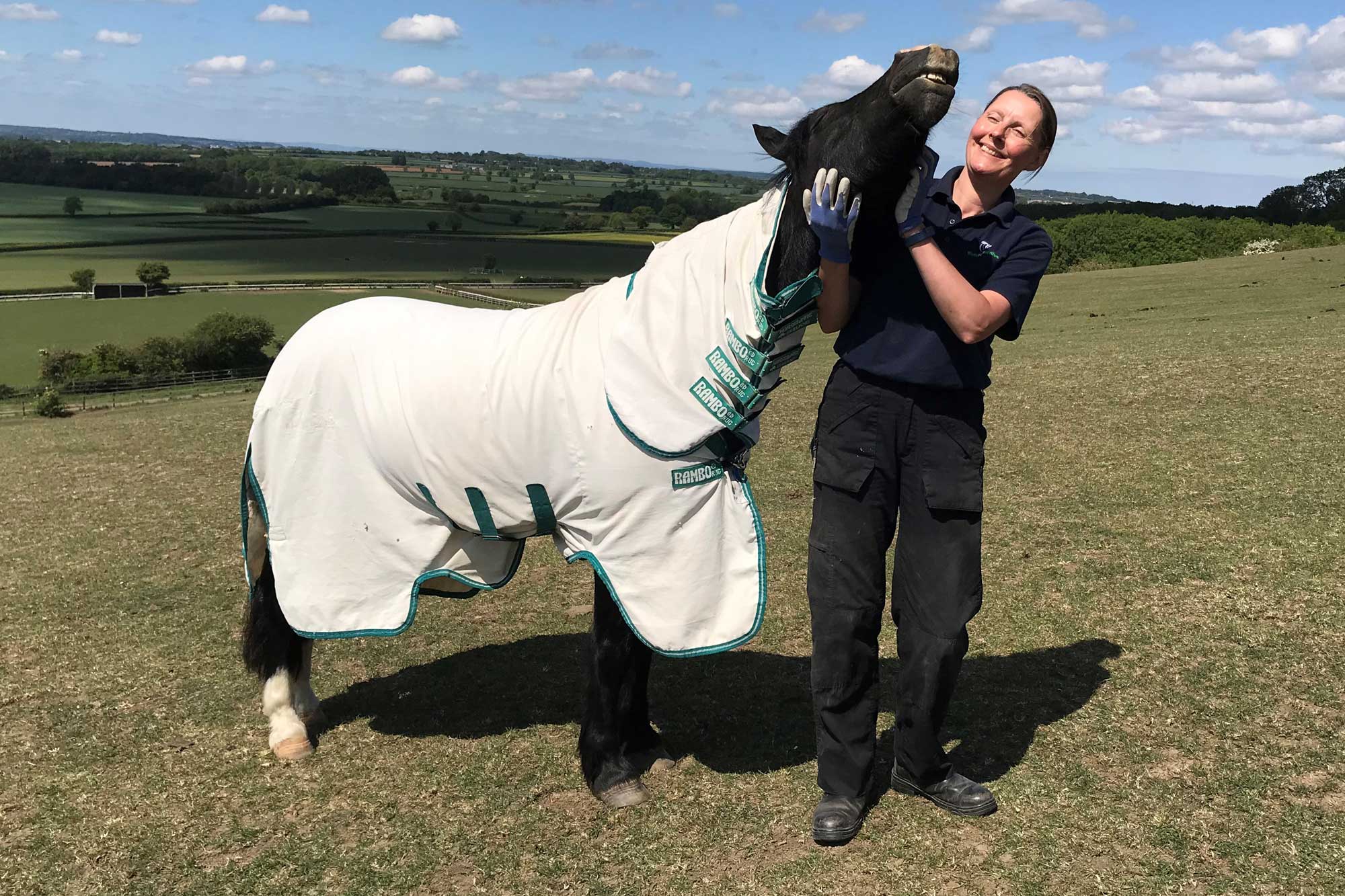Equine Grass Sickness: Exciting times ahead for this difficult and devastating disease of horses
The Moredun Foundation together with other organisations has produced a comprehensive new booklet on Equine Grass Sickness.
Posted on 06/08/2020

Moredun, with partners from the Equine Grass Sickness Fund (EGSF), the Royal (Dick) School for Veterinary Studies, University of Edinburgh, University of Liverpool, the British Horse Society and World Horse Welfare have produced a comprehensive booklet, Equine Grass Sickness: A research update and look to the future bringing research together and pointing to a new inter-disciplinary approach for the future.
Helene Mauchlen, BHS Scotland, commented:
“We are delighted to support this research update, which is such a useful summary of exactly where we are with this complex and destructive disease, showcasing the decades of work and signposting us to a better and hopefully EGS free future. Congratulations to all at the Moredun and the EGSF.”
Moredun, which celebrates its Centenary this year, has been involved in EGS research over its entire history and is home to the Equine Grass Sickness Fund. The original research started when the disease caused the deaths of many working horses on farms in the 1920s. One hundred years later and the cause of this devastating disease remains elusive, but the consensus is that it is likely to be multi-factorial. There are no treatments or vaccines to prevent disease and around 80% of horses contracting the disease do not survive. The disease has a strong association with geography, being more prevalent in the east side of the UK, compared to the west, with Aberdeenshire being the county suffering the most cases annually in the UK. It also has a seasonal pattern and is most common in the spring and early summer and in young, adult equines.
The research update has brought many research scientists from different institutions and equine charities together and it is now available to download here. With grateful thanks to the Moredun Foundation, EGSF, British Horse Society and World Horse Welfare for their generosity in funding this research update, Kate Thomson of the Equine Grass Sickness Fund said:
“The booklet highlights the vital role that horse owners play in reporting EGS cases, helping us understand the incidence and risk factors associated with the disease.”
Roly Owers from World Horse Welfare said:
“Equine Grass Sickness is a truly horrible disease that all too often impacts World Horse Welfare directly, with one of our Rescue and Rehoming Centres being in Aberdeenshire and another in Norfolk, both areas with a high EGS prevalence. It is a disease that has been known about for decades yet there is still so much we don’t know about it. So we are pleased to support this publication bringing together the latest information about this pernicious and stubbornly mysterious disease and to work with EGSF in their determination to increase our understanding of it and to find a cure for it.”
But this is just the start! To breathe fresh thinking and approaches into EGS research, Moredun, with partners across many related disciplines such as microbiology, immunology, soil science, plant science, fungal biology, genetics, molecular biology and bioinformatics, have applied to the EGSF to fund a full-time Research Fellow for three years. The main aims of the Fellowship will be to set up a national database and sample biobank with the assistance of a UK wide network of vet ambassadors and horse owners. This will assist greatly in research going forward and will be an important resource available to all EGS researchers. The Fellow will also investigate novel strands of research using the latest technologies, with the assistance of a support network of senior researchers and fellows.
Dr Beth Wells from Moredun said:
“It has been a very exciting time bringing together a truly multi-disciplinary team to work together to provide a fresh look at this devastating disease. The Fellowship will provide a dedicated scientist to set up the national database and sample biobank working with vets and horse owners. The Fellow will also overview EGS research and, working with a highly experienced mentoring team of scientists, will take forward new ideas and research strands.”
Sylvia Ormiston, stud manager at Balmoral Estate added:
“I am so excited to hear of the new angles that the Moredun are approaching EGS research with. As a Stud manager and pony owner I know only too well of the damage this dreadful disease can do and I am happy to support the research in any way I can. Together we hopefully make some progress to try and beat this baffling disease.”
Exciting times are indeed ahead for EGS research, by opening up channels and forming an inter-disciplinary, collaborative network, it is hoped to provide answers and solutions to this difficult and devastating disease.
Topics
Related News

Do you have an interest in horses?
If so, we’d like to know what interests you about horses, what you want to learn more about and what your opinions are.

Landmark study addresses effects of rider weight on equine performance
Results revealed from groundbreaking study into the impact of rider weight.
Recommended Blog Posts

Sweet itch: what is it and how do we manage our ponies who have it?
Glenda Spooner Farm Rescue and Rehoming Centre Assistant Centre Manager Sara Jerman explains more.

Delivering real, lasting change for horses in Lesotho
Find out what happens when more than 200 volunteers get together to help horses in need.

How we’re taking steps to make our rescue and rehoming centres more environmentally sustainable
With the welfare of the environment, horses and people closely interlinked, simple changes can make a big difference.
Enjoy reading stories like this?
Join over 65,000 other horse lovers and sign up for our email newsletter

Join over 65,000 other horse lovers and sign up for our email newsletter
Sign me up now